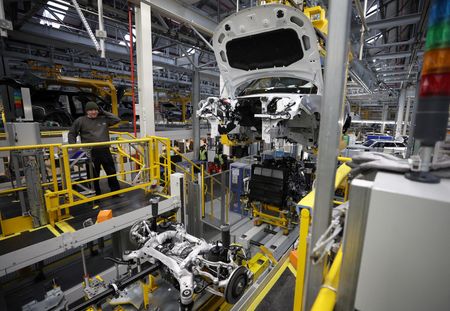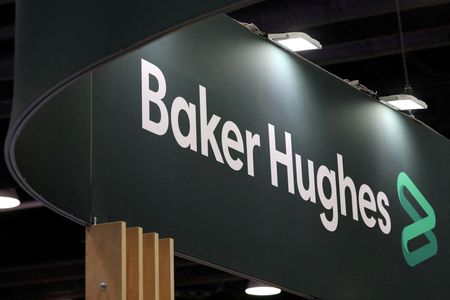(Reuters) -Britain’s car production fell a sharp 27% in September, industry data showed on Friday, as an unprecedented cyberattack halted production for several weeks at Jaguar Land Rover, the country’s largest carmaker.
The cyberattack, classified as a category three systemic event due to its widespread impact, cost the British government an estimated 1.9 billion pounds ($2.55 billion) and affected over 5,000 organizations, according to a report published on Wednesday by an independent cybersecurity body.
The luxury carmaker, owned by India’s Tata Motors, makes about 1,000 cars a day across three UK factories.
JLR said it will partially resume some manufacturing operations earlier this month after an almost six-week shutdown.
A total of 51,090 cars rolled off production lines in the UK in September, the Society of Motor Manufacturers and Traders (SMMT) said.
EMPLOYEE CAR SCHEME OVERHAUL RISKS PRODUCTION CUTS
The slump comes as the sector warns that the government’s plans to scrap employee car ownership schemes could cut over 1 billion pounds in revenue, put 5,000 jobs at risk and blow a near 500 million-pound hole in government finances from lost tax receipts.
The schemes allow automotive workers to buy the cars they help make at preferential rates.
SMMT said the government’s plan to reclassify these vehicles and make them liable for company car tax would also result in 80,000 fewer new car sales annually and reduce UK production volumes by up to 20,000 units.
“The move to scrap ECOS immediately puts that ambition in doubt and must be reversed given the damage it will inflict on the sector and exchequer revenues,” SMMT Chief Mike Hawes said, referring to the government’s goal to restore UK vehicle output to 1.3 million units annually.
($1 = 0.7451 pounds)
(Reporting by Yamini Kalia in Bengaluru; Editing by Sahal Muhammed)









